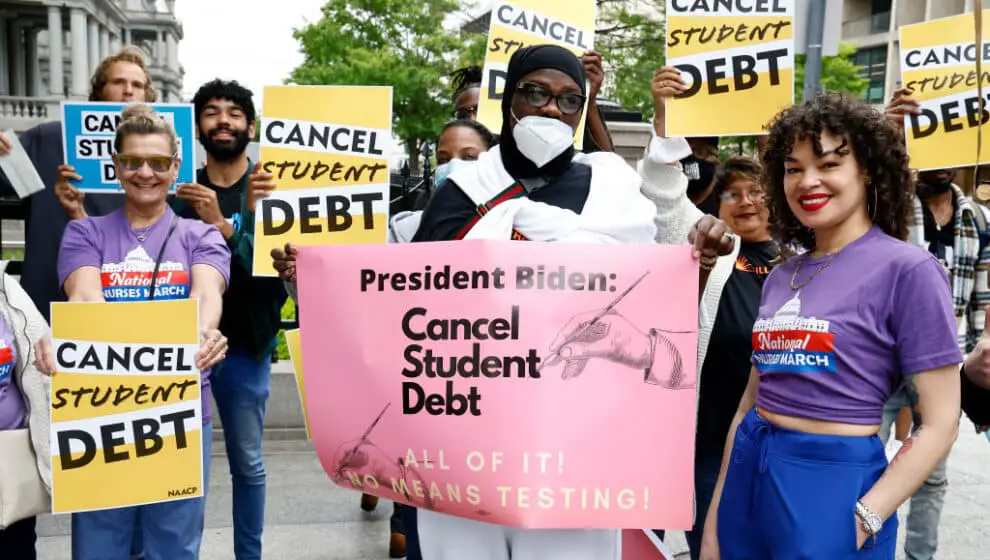Some students aren’t happy with President Joe Biden’s loan forgiveness plan—and two former students are taking it to court.
Key Details
- President Joe Biden’s student-loan forgiveness plan has received both praise and criticism from both students and former students across the nation.
- Two former Texas students are taking it to court claiming that their debt was unfairly excluded from the forgiveness plan.
- Myra Brown and Alexander Taylor of Texas have sued the Biden administration claiming that the rules of the forgiveness plan are unfair and their debt should be covered.
Why it’s news
In late August, President Biden announced the student-loan forgiveness program that he had formerly promised in his presidential campaign.
The plan has been put into place to diminish some of the nation’s student-loan debt that totals around $1.6 trillion.
There are some requirements in order to receive forgiveness. Americans earning less than $125,000 annually—or $250,000 per household—will receive up to $10,000 in federal student loan forgiveness, while students who received the Pell Grant will have $20,000 forgiven.
The stipulations allow a big number of people to receive the forgiveness, but with any program there is a group of people left out. Myra Brown and Alexander Taylor of Texas fall into the category that will not receive the money and think that it is not fair.
The two claim the Department of Education made arbitrary decisions on loan forgiveness eligibility in violation of administrative procedure law, according to Bloomberg writer Madlin Mekelburg.
“The result of this arbitrariness is predictable,” Brown and Taylor said in the suit. “Some will benefit handsomely, some will be shortchanged, and others will be left out entirely.”
Brown attended the University of Texas, El Paso, and Southern Methodist University and received her $17,000 in loans commercially, thus she will not receive forgiveness for those loans.
Taylor attended the University of Dallas and borrowed $35,000. He complains in the suit that he does not qualify for the extra $10k because he didn’t receive the Pell Grant even though he makes less than $25,000 annually.
“Yet others making more than five times as much as he does (up to $125,000 a year) will receive $20,000 in debt forgiveness if they got a Pell Grant in college,” the suit reads.
It has not yet been announced when the case will make its way to court.

